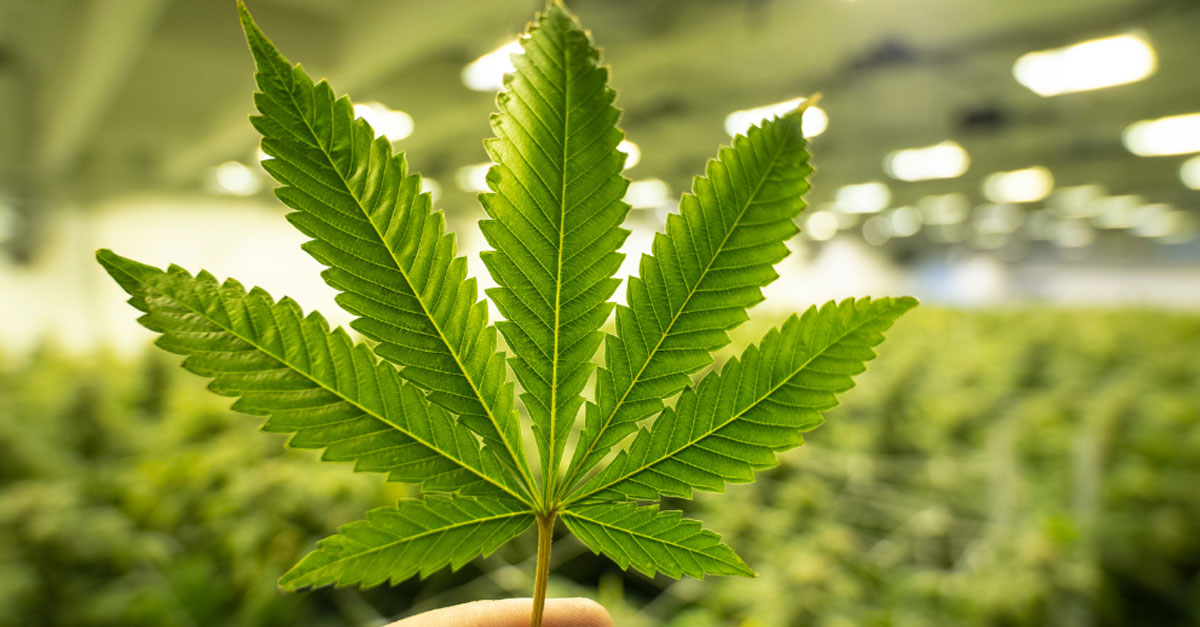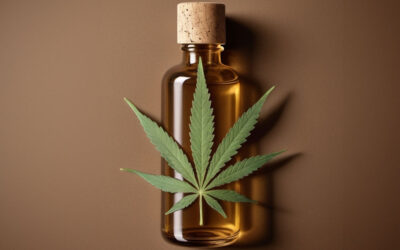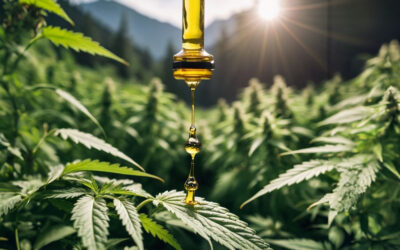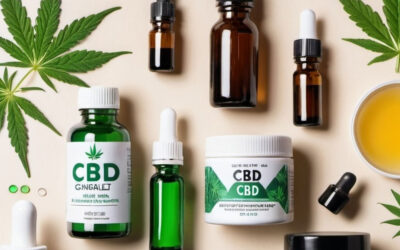From Seed to Sale: Where Dispensary Weed Comes From

From Seed to Sale: Where Dispensary Weed Comes From
Until recently, most of us didn’t know where our weed came from. We called this guy who gets it from another guy who knows this girl…you get it. Maybe we got lucky and had a California connection, or we settled for the stuff that filtered in from south of the border. Either way, unless you were close to the grower, which was rare, you never really knew where your cannabis came from. But today, we do, and it’s fantastic.
Legalization and regulation have allowed us to track our weed from seed to sale. Because a dispensary’s products must meet certain quality standards and be safe for consumption, tracking and a paper trail must be kept. This means that after using mystery weed for our entire lives, we now know what we are smoking. And guess what? The majority of it truly is from California.
Seed-to-sale refers to the process of “making” cannabis and then selling it legally. This includes growing and harvesting, testing and quality control, packaging and labeling, and finally, sales and customer service. So let’s take the mystery out of that baggie and show you where dispensary weed comes from.
Thank You, California
Before cannabis products can be sold in a dispensary, they must first be grown. US dispensaries must source their products from licensed growers. These growers follow a strict set of guidelines to ensure their cannabis products meet state standards. While there are seven states where commercial cannabis can be grown, a significant portion of our ganja comes from California.
Statista.com reported California far surpasses other states in the number of cultivation licenses granted, coming in at 6,881 in 2023. That’s compared to the next top grower, Oregon, which has a mere 1,406 licenses. And according to Leafly.com: “State regulators estimate the Triangle [region of California] grows an estimated 1.7 million pounds of cannabis each year, the US’s number one domestic supplier of the crop.
From Seed…
Commercial cannabis crops start with selection. There are numerous strains of cannabis available, each with unique properties such as growth rate, yield, flavor, aroma, and THC/CBD content. Experienced cultivators choose a strain that suits the grower’s needs and the intended market, ensuring that the crop meets consumer demand. Once the strain is selected, the grower can start seeds or clones for cultivation.
Environment is everything for the success of a cannabis crop. Temperature, humidity, lighting, soil, and nutrients must all be just right. The optimal conditions for cannabis growth depend on the strain, and growers must pay close attention to each plant’s individual needs. Lighting is also crucial, as cannabis requires a specific amount of light to grow properly. Artificial lights such as high-pressure sodium and LEDs are commonly used for indoor cultivation, while outdoor plants rely on natural sunlight. The grower also gives the plants a proper nutrient mix to support growth and prevent nutrient deficiencies or toxicities.
Proper care and attention to detail during the growth cycle are crucial for producing high-quality cannabis crops for commercial use. The grower must monitor the plants for pests and diseases that could harm the crop. Cannabis plants are susceptible to various pests, including spider mites, aphids, and whiteflies, which can stunt growth or cause significant damage to the crop. Preventative measures such as using organic pesticides, monitoring humidity levels, and ensuring proper air circulation can help prevent infestations. In addition, regular pruning and trimming can promote healthy growth and increase yield.
Harvest and Trim
Once the cannabis plants have been harvested, it’s time for the trimming. This is where the cannabis products are trimmed and jarred for sale. Trimmers are responsible for cutting off any leaves from the cannabis plant, as well as trimming the flower buds. For the products to be the highest quality, trimmers must take great care to ensure that all the buds are perfectly trimmed and neatly jarred.
Trimming can be time-consuming and tedious, but it is an integral part of the process. Trimmers use specialized cutting tools to ensure that the cannabis products are trimmed in a way that looks aesthetically appealing while also helping to maintain the highest quality. After the trimming is complete, the cannabis products are jared and labeled for testing.
Lab Testing and Labeling
All legal dispensary cannabis products must go through lab testing. This is to ensure quality as well as safety. Cannabis lab testing involves a variety of analytical techniques to determine the chemical composition and potency of cannabis products. These tests are critical to ensure that cannabis products meet safety and quality standards, as well as regulatory requirements. The testing process typically involves a series of steps, including sample preparation, extraction, and analysis.
After the product passes lab testing, it is ready for labeling. This is the part we get excited about. Before marijuana regulation, terms like “terpene profile” meant little. Now we can look at our weed jar and get more information than we ever dreamed. Today’s typical cannabis product label includes:
- Product name
- Weight
- Date tested
- Date packaged
- Expiration date
- Batch and lot number
- Total THC and CBD
- Terpene profile percentages
Seeing this information on our weed still amazes us, and with the industry’s boom, the labeling continues to include even more data. And many dispensaries include a certificate of analysis printout with your product. For those that don’t, they often make it available to view online.
The Edibles Kitchen
For cannabis consumers who prefer to use edible products, dispensary kitchens are also an important part of the product journey. Any products that have been infused with cannabinoids, such as THC and CBD, are considered edibles. These cannabis products are becoming increasingly popular among consumers as they are a discreet and delicious way to enjoy cannabis.
Some larger dispensaries have their own kitchens. The kitchen staff is responsible for accurately measuring the amount of THC or CBD that goes into each edible product.
Edibles tend to take more time than other cannabis products as they need to be carefully measured and prepared in a sterile kitchen environment. Once the process is complete, the edibles are packaged and labeled with the strain name, THC and CBD levels, and any other required information. Once the products are ready for sale, they are sent to the dispensary for consumers to enjoy.
To Sale…
After cannabis has been grown, harvested, trimmed, tested, labeled, and packaged, it’s ready for sale. From the security staff that verifies your credentials and lets you in the door to the budtender with answers and suggestions, the dispensary experience is awesome. We don’t have to wait for that guy who knows another guy to hook us up with stemmy and seedy green anymore. Today, we can grab a jar of flower and a pack of gummies with peace of mind that we know where our weed comes from.
Latest GreenCore News
CBGA: The Mother of All Cannabinoids
CBGA: The Mother of All Cannabinoids CBGA, often called the "mother of all cannabinoids," is gaining significant attention. This foundational cannabinoid is showing promise in reducing seizures and treating conditions like insomnia and chronic pain. Recently, its...
Cannabis Concentrate Spotlight: Rick Simpson Oil
Cannabis Concentrate Spotlight: Rick Simpson Oil Rick Simpson Oil has become a cornerstone in the world of cannabis products. Renowned for its versatility, this concentrate offers a multitude of benefits for both medical patients and recreational users.In this blog,...
CBD 101: Properties, Production, and Potential
CBD 101: Properties, Production, and Potential CBD has rapidly evolved from a little-known compound to a household term. But while it has become a ubiquitous term, many remain unclear on what cannabidiol actually is. In this blog, Green Core Specialty Insurance...
Contact Us
Office Location
1600 Golf Road, Suite 1200
Rolling Meadows, IL 60008
Office Hours
M-F: 8am - 6pm
Phone
847-201-4600



